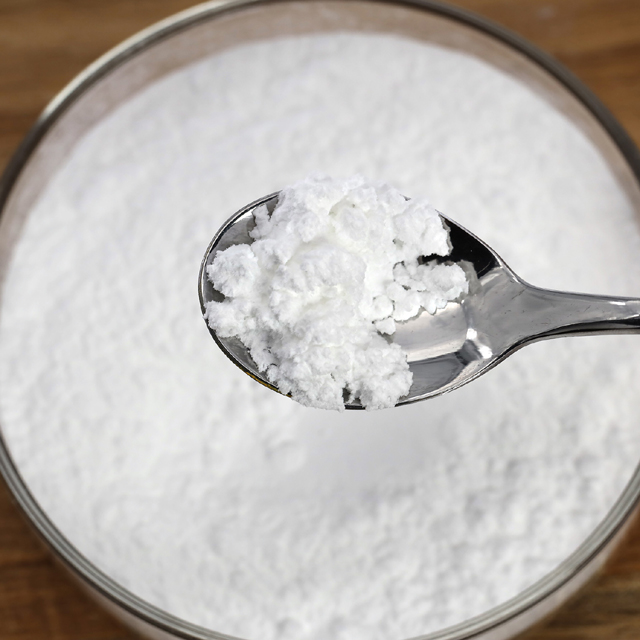
Vitamin B1, also known as thiamine, is an essential water-soluble vitamin that plays a crucial role in maintaining human health. It is a white to yellow-white fine crystalline substance, primarily used in treating and preventing vitamin B1 deficiency, commonly known as beriberi. This vitamin is a vital component for the nervous system, muscle function, and metabolism, and it is naturally found in various food sources such as whole grains, legumes, and meat. Vitamin B1 is available in two forms: thiamine hydrochloride (CAS No. 67-03-8) and thiamine mononitrate (CAS No. 532-43-4), with thiamine mononitrate being more stable than the hydrochloride form.
| Items | Standard |
| Appearance | White or almost white crystalline powder or colourless crystals |
| Indentification | A:IR absorption;
C:Reaction(a) of chlorides |
| Appearance of solution | Clear,not more intense than Y7 or GY7 |
| PH | 2.7~3.3 |
| Water | ≤5.0% |
| Sulphated ash | ≤0.1% |
| Sulphates | ≤300ppm |
| Impurity A | ≤0.15% |
| Impurity B | ≤0.3% |
| Impurity C | ≤0.15% |
| Unspecified impurity | ≤0.10% |
| Total impurities | ≤0.5% |
| Assay(on anhydrous basis) | 98.5%~101.0% |
Product Features
Chemical Composition: Vitamin B1 (thiamine) is available in two common forms: thiamine hydrochloride (CAS No. 67-03-8) and thiamine mononitrate (CAS No. 532-43-4).
Appearance: White to yellow-white fine crystalline powder.
Solubility: Vitamin B1 is water-soluble and stable in acidic solutions.
Storage: Store in a cool, dry place away from direct sunlight to maintain potency.
Packaging: Available in bulk packaging (25kg drums), making it easy for large-scale industrial use.
Product Advantages
Essential for Human Health: Vitamin B1 is vital for maintaining proper metabolic processes in the body, including energy production from carbohydrates.
Prevents Beriberi: This vitamin helps treat and prevent beriberi, a disease caused by vitamin B1 deficiency, which affects the nervous system and cardiovascular system.
Supports Digestive Health: Vitamin B1 plays an important role in aiding digestion by supporting the digestive tract’s smooth functioning.
Animal Health Benefits: Vitamin B1 is also crucial in animal feed, supporting growth, improving metabolism, and increasing milk and egg production in livestock.
Stability: Thiamine mononitrate is more stable than thiamine hydrochloride, ensuring a longer shelf life for products containing this form of Vitamin B1.
Product Applications
Pharmaceutical Industry:
Treatment of Beriberi: Vitamin B1 is used to treat and prevent beriberi, a condition caused by a deficiency of thiamine.
Support for Digestion: In pharmaceutical applications, Vitamin B1 can be used to aid digestion and reduce the effects of digestive disorders.
Food Industry:
Nutritional Supplement: Vitamin B1 is added to food products as a fortifying agent to support overall health. It is commonly added to breakfast cereals, energy bars, and other fortified foods.
Health Supplements: Vitamin B1 is widely used in dietary supplements aimed at improving energy levels and supporting metabolic health.
Animal Feed Industry:
Livestock and Aquatic Animal Health: Adding Vitamin B1 to animal feed helps in preventing vitamin B1 deficiency, improving growth rates, increasing milk and egg production, and promoting overall health in poultry, livestock, and aquatic animals.
Boosts Growth: Vitamin B1 supplementation enhances the metabolism of farm animals, contributing to increased body weight and improved productivity.
FAQs
Q1: What is Vitamin B1 used for?
A1: Vitamin B1 is primarily used to treat and prevent beriberi, a condition caused by thiamine deficiency. It is also used to support digestion and enhance overall metabolic health in humans. In animals, Vitamin B1 is added to feed to promote growth and improve productivity.
Q2: How is Vitamin B1 beneficial for animals?
A2: Vitamin B1 is essential for livestock and aquatic animals. It helps improve their metabolic functions, boosts growth rates, and increases milk and egg production. It also prevents disorders caused by vitamin B1 deficiency, ensuring better overall health.
Q3: What forms of Vitamin B1 are available?
A3: Vitamin B1 is available as thiamine hydrochloride (CAS No. 67-03-8) and thiamine mononitrate (CAS No. 532-43-4). Thiamine mononitrate is more stable than thiamine hydrochloride, making it preferable for long-term storage in various applications.
Q4: How should Vitamin B1 be stored?
A4: Vitamin B1 should be stored in a cool, dry place, away from direct sunlight and moisture to preserve its effectiveness. Proper storage ensures a longer shelf life and maintains its potency.
Q5: Can Vitamin B1 be used in food products?
A5: Yes, Vitamin B1 is often added to food products as a nutritional supplement. It is commonly found in fortified cereals, energy drinks, and other health-focused food items to support overall wellness.
















